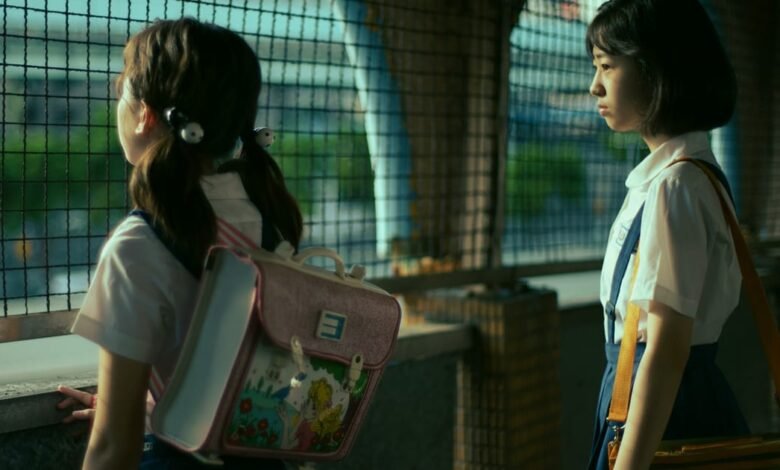

In teenage dramas the lesson of the classroom often sets the tone, so when Hsiao-Lee’s (Bai Xiao-Ying) teacher asks his students to spell “malaise”, the feeling of unease spreads into the entirety of Shu Qi’s debut feature Girl (Nühai). In this moment Hsiao-Lee, the Girl in question, haunts the doorway of her classroom as she does every scene of the film. As she faces daily abuse from her drunk step-father (Roy Chiu) and struggling mother (Joanne Tang Yu-chi also known as singer 9m88), while helping to raise her much livelier younger sister (Yu-Fei Lai), it is no wonder that she appears despondent. Girl follows the sombre Hsaoi-Lee as she navigates a routine of domestic chores, school life and consistent abuse. It’s only when a new friend, Li-Li (Audrey Lin) comes into her life that Hsaoi-Lee learns how to rebel.
Shu Qi, the Hong-Kong-Taiwanese actor whose career was elevated from the Category III films of her early years to becoming the muse of Hou Hsiao-Hsien – starring in Millenium Mambo and The Assassin – has turned her attention to filmmaking after 30 years in the industry. Perhaps it is her unique journey from lascivious b‑movies to Taiwanese New Wave darling that gives Shu Qi the bravery to deliver this bold decisive debut, that while following a well trodden path, with its focus on childhood trauma, manages to forge its own track.
Get more Little White Lies
Drawing direct inspiration from Shu Qi’s own childhood, combined with Qi’s experience in the industry and decades of reflection, the new director practices restraint, and Girl refuses to tug at the audience’s heart strings. Qi has carefully selected every moment, whether that be her father’s drunken rage or her mother’s disproportionate punishments inflicted on Hsiao-Lee. While some of the domestic violence is delivered with unflinching precision, there is much deliberately left off-screen. When Hsiao-Lee’s father turns his abusive attention to Hsiao-Lee, Shu Qi opts for childlike terrible fantasy, making the unseen, unsaid horrors of her life more arresting than if Girl had resorted to the triggering reconstructions of a conventional drama.
While girls – sister, friend and mother included – are Shu Qi’s focus as the actions of men affect the lives of each of them, she is careful not to tar the alcoholic father with a single brush. Although his brutish behaviour dominates the household, he is in addiction’s vice-like grasp. Similarly, Hsaoi-Lee’s abused mother is no saint, passing on violence as she fails to comprehend what is being done to her. Girl offers no easy answers, making for an uncomfortable, invaluable watch.
Girl is markedly different from today’s many trauma tales, which often opt for realism for their depictions of abuse. In part due to cinematographer Yu Jing-Pin’s lavish saturation, creating a film simultaneously gorgeous and discomforting. While the cheap synthetic blues and greens in Hsiao-Lee’s world are heightened, this same effect makes the skin of each family member appear sallow, as if their troubled home is itself spreading disease. This use of colour is brought into sharp contrast when the gradient shifts to natural look for the film’s final act, in which the girls, now women, are no longer forced to compete with the interior décor, their skin finally looks alive. What makes Girl so special is Shu Qi’s imaginative approach to the craft, often opting for the abstract over a linear retelling, proving herself to be a filmmaker with a unique eye.




